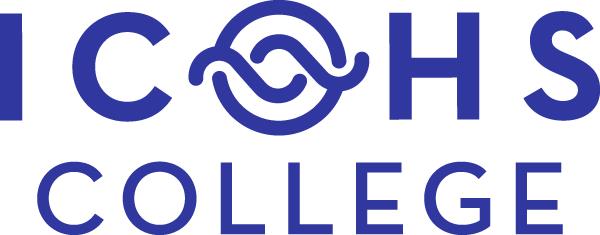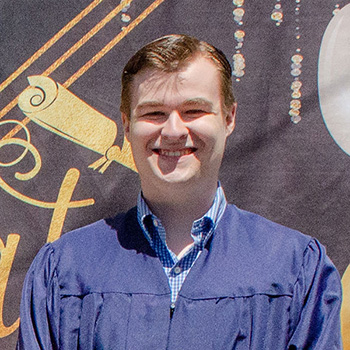Are you thinking about becoming a Holistic Health Practitioner, but you aren’t sure where to start? Whether you are beginning your career path or returning to school for a second career, we’re here to answer your questions.
[toc]What is Holistic Health?
Holistic health is a comprehensive approach that addresses a person’s mental, emotional, and spiritual health in addition to their physical health.
The practice looks at how the body works together instead of only focusing on one area of the body alone. Holistic Health Practitioners feel that if one part of a person’s health is not working properly, then the whole body is affected.
Holistic health emphasizes achieving optimal health and preventing disease as well as treatment. It focuses on a person’s lifestyle, such as diet and nutrition, sleep, stress, and exercise.
When a person is experiencing a problem, holistic medicine focuses on treating the patient’s underlying condition and the cause of the problem instead of just the symptoms.
Holistic health looks at five areas of a person’s overall well-being:
- Physical: diet, physical activity, sleep, etc.
- Emotional: attitude, outlook, stress, etc.
- Social: relationships
- Spiritual: the meaning of your life and religious practice
- Intellectual: lifelong learning
Holistic medicine doesn’t turn to pharmaceutical drugs or surgery as the first line of treatment. It uses natural, holistic, and less invasive methods, if possible, to heal the individual as a whole from within.

Holistic Health vs. Alternative Medicine
If non-conventional methods are used in place of conventional medicine, they are considered alternatives. But, if non-conventional methods are used together with conventional medicine, they are considered complementary.
Holistic medicine isn’t necessarily alternative medicine because it can be used as part of or in addition to a conventional medical plan. In fact, it’s not uncommon to hear holistic health referred to as “complementary and alternative medicine.”
Holistic medicine aims to bring conventional and complementary methods together to care for the whole person.
What is a Holistic Health Practitioner?
When you visit a conventional medical doctor, do they usually ask about how you are eating, how you are sleeping, if you are stressed, or how you feel about your relationships or your spiritual life? Successful Holistic Health Practitioners make a point to discuss all of these aspects of a patient’s life.
These individuals take care of patients by addressing their overall concerns, including their mental, emotional, and spiritual needs. At the same time, they may integrate traditional health practices with alternative medicine.
Individuals are becoming more active and playing a more significant role in their own health. They no longer rely on doctor’s orders or alternative medicine alone. They are focused on their overall well-being and not just treating symptoms as they arise. Still, they’ll want some guidance on how to achieve optimal health.
Holistic Health Practitioners guide and encourage patients to meet all of their health and wellness goals.
Holistic doctors will take the following steps with their patients:
- Review the patient’s medical history and symptoms and conduct an in-depth interview with the patient to collect information
- Assess all aspects of the patient’s physical health
- Work with the patient to develop a treatment or prevention plan depending on the patient’s total wellness goals
- Provide different types of therapy, including conventional and alternative treatments
- Follow up routinely with the patient and document all treatments and interactions in the patient’s health record
Holistic Health Practitioners must get to know each patient individually because what works for one patient may not be suitable for another. Remember, what is good for a patient now might not be good for them in the future.
How to Become a Certified Holistic Health Practitioner

First, do your research and understand what it means to be a Holistic Health Practitioner. Gain a good understanding of the field and the day-to-day responsibilities. Read articles and watch videos online. Talk with people in the career and shadow a Holistic Health Practitioner.
After your research, ask yourself the following questions:
- Do I still want to pursue a career in holistic health?
- How much time do I have to devote to my studies?
- How much am I willing to spend on holistic healthcare school?
- Will I need to relocate, or are courses available online?
- Do I want to work as a general practitioner or in a specialty?
Next, you need to attend holistic healthcare school for your chosen field to get the necessary degree, diploma, or certificate.
After completing your training, find out if you will need a Holistic Health Practitioner certification and licensure. Obtain your license as your state requires. Ongoing education is also vital in a field that is constantly changing.
A successful Holistic Health Practitioner will be happy to share their training, education, certification, and licensure, and experience with patients. It can be advantageous to obtain the highest level of education and training in your field. These things will help build trust between you and your patients.
Holistic Healthcare Schools
There are many different routes and levels of education in holistic health. Most holistic healthcare schools include training in anatomy and physiology, nutrition, movement and exercise, stress and relaxation methods, psychology, energy healing, death and dying, and herbal medicine.
For example, the Holistic Health Practitioner program in San Diego from ICOHS offers courses in the following areas:
- Fundamentals of massage
- Anatomy and deep tissue
- Kinesiology and client assessment
- Western modalities
- Eastern modalities
- Body systems, pathology, and special populations
- Career development
- Holistic healing applications
- Energy modalities
- Medical massage applications
- Advanced clinic
Holistic healthcare school can take between six months and four years, depending on your focus, and usually results in a diploma, certificate, or degree.
You can begin with general training in holistic health then choose a specialty. At ICOHS College, you can choose to get advanced training in herbology and nutrition or advanced massage techniques.
Other holistic health programs can introduce students to concentrations, like Traditional Chinese Medicine (TCM) or Ayurveda. Some of the most popular certifications in these areas include the Diplomate of Oriental Medicine (Dipl. O.M.), Diplomate of Acupuncture (Dipl. Ac.), and Diplomate in Asian Body Therapy (Dipl. A.B.T.).
Advanced degrees may include a master’s or doctorate and can take up to six to eight years.
While 33.0% of Holistic Health Practitioners have a bachelor’s degree and 12.7% have a master’s degree, you can practice as a Holistic Health Practitioner with a high school degree or GED paired with holistic health training.
Holistic Health Careers

Just like traditional medicine, holistic medicine includes many specialties. Holistic health professionals and drugless practitioners can pursue a variety of careers, depending on the education requirements involved. Some of the most common holistic health practices include:
- Naturopathic doctor
- Nutritionist
- Massage therapist
- Herbalist
- Yoga instructor
- Chiropractor
- Life coach
- Acupuncturist
- Aromatherapist
- Meditation teacher
- Reflexologist
- Hypnotist
- Reiki practitioner
According to the Institute of Holistic Health Careers, most practitioners are self-employed, with some working in education and consulting. However, there are opportunities for individuals to find work at facilities like massage therapy clinics, sports medicine treatment centers, and hospitals.
Certification and Licensure
Holistic health professionals typically require certification before they can begin practice, but this varies by state and specialty. Check with your school about credentials and with the state about licensing requirements.
Some of the nation’s leading organizations offering certifications include The National Certification Commission for Acupuncture and Oriental Medicine (NCCAOM), the National Certification Board for Therapeutic Massage and Bodywork (NCBTMB), and the American Holistic Health Association (AHHA).
Salary
Holistic Health Practitioners earn a median salary of $48,316 per year, with the top 10% making over $69,000 and the bottom 10% making under $33,000. Of course, salary potential will vary greatly depending on what area of holistic health you choose to pursue.
According to the BLS, the median salary of health diagnosing and treating practitioners falls around $74,000 per year. Massage therapists, meanwhile, can expect to earn around $43,600 annually.
The job outlook for specific disciplines, like massage therapy, hypnotists, and yoga instructors, remains promising, with employment growing at a much faster rate than projected for other careers.
Career Outlook for Holistic Health Practitioners
Opportunities in holistic health are increasing, with more complementary treatment covered by insurance and more people turning to holistic wellness methods.
According to a 2012 national survey by the National Center for Complementary and Integrative Health (NCCIH), more than 40% of Americans use some form of alternative medicine either alone or in conjunction with traditional medicine. That helps explain why employment among Holistic Health Practitioners is expected to grow by 26% between 2018 and 2028.
Conclusion
Holistic health offers career growth, flexibility, a variety of work environments, and personal satisfaction knowing that you are helping people every day. If this sounds exciting to you, check ICOHS College for more information.
Give us a call at (858) 581-9460 to learn about program options, financial assistance, and more. Or, fill out our program form to get started on a successful career in holistic health.
FAQs
How long does it take to become a holistic doctor?
Licensed naturopathic doctors must attend a four-year, graduate-level naturopathic medical school. There, they will study holistic and nontoxic approaches to treatment as well as basic sciences.
How do I become a holistic practitioner in Canada?
To become a Holistic Health Practitioner in Canada, you must complete an accredited master’s degree program approved by the Council on Naturopathic Medical Education (CNME).
These programs must offer a minimum of a four-year, in-residence curriculum in biomedical science, didactic studies, and clinical (experiential) training leading to an ND degree. Graduates may then sit for the NPLEX (Naturopathic Physicians Licensing Examinations) offered by the North American Board of Naturopathic Examiners.
What can a holistic practitioner do?
A holistic practitioner uses alternative approaches to treat wellness problems their patients are experiencing. They may draw on the spiritual aspects of oriental medicine to address specific issues, like stress management or common health concerns.
What are other examples of holistic careers?
Other holistic careers fields include massage therapy, chiropractic treatment, yoga, acupuncture, reiki, naturopathy, nutrition, and life coaching.









